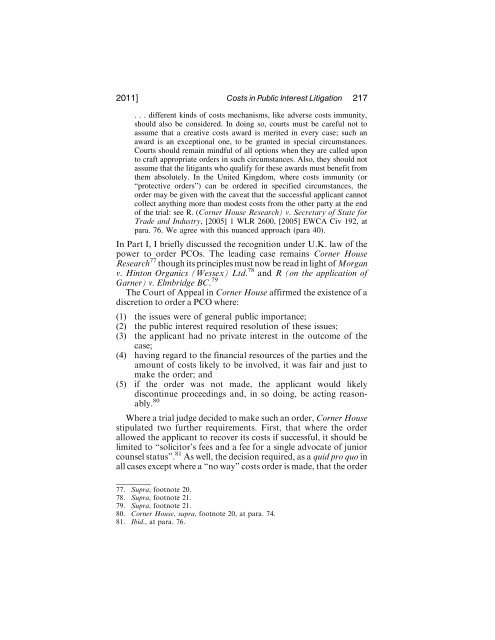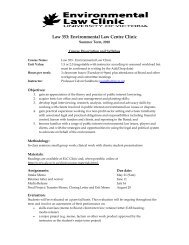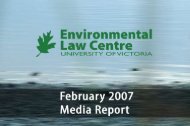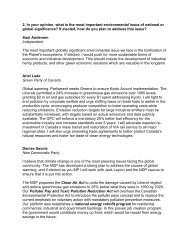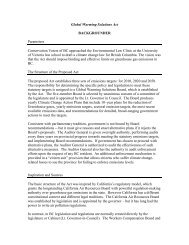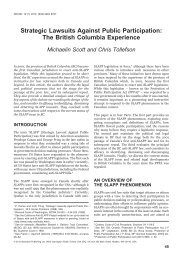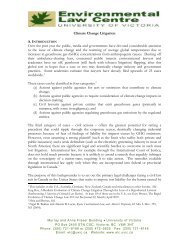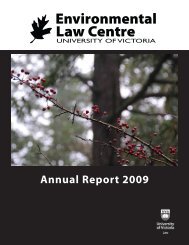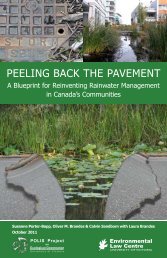COSTS IN PUBLIC INTEREST LITIGATION REVISITED ...
COSTS IN PUBLIC INTEREST LITIGATION REVISITED ...
COSTS IN PUBLIC INTEREST LITIGATION REVISITED ...
You also want an ePaper? Increase the reach of your titles
YUMPU automatically turns print PDFs into web optimized ePapers that Google loves.
2011] Costs in Public Interest Litigation 217. . . different kinds of costs mechanisms, like adverse costs immunity,should also be considered. In doing so, courts must be careful not toassume that a creative costs award is merited in every case; such anaward is an exceptional one, to be granted in special circumstances.Courts should remain mindful of all options when they are called uponto craft appropriate orders in such circumstances. Also, they should notassume that the litigants who qualify for these awards must benefit fromthem absolutely. In the United Kingdom, where costs immunity (or“protective orders”) can be ordered in specified circumstances, theorder may be given with the caveat that the successful applicant cannotcollect anything more than modest costs from the other party at the endof the trial: see R. (Corner House Research) v. Secretary of State forTrade and Industry, [2005] 1 WLR 2600, [2005] EWCA Civ 192, atpara. 76. We agree with this nuanced approach (para 40).In Part I, I briefly discussed the recognition under U.K. law of thepower to order PCOs. The leading case remains Corner HouseResearch 77 though its principles must now be read in light of Morganv. Hinton Organics (Wessex) Ltd. 78 and R (on the application ofGarner) v. Elmbridge BC. 79The Court of Appeal in Corner House affirmed the existence of adiscretion to order a PCO where:(1) the issues were of general public importance;(2) the public interest required resolution of these issues;(3) the applicant had no private interest in the outcome of thecase;(4) having regard to the financial resources of the parties and theamount of costs likely to be involved, it was fair and just tomake the order; and(5) if the order was not made, the applicant would likelydiscontinue proceedings and, in so doing, be acting reasonably.80Where a trial judge decided to make such an order, Corner Housestipulated two further requirements. First, that where the orderallowed the applicant to recover its costs if successful, it should belimited to “solicitor’s fees and a fee for a single advocate of juniorcounsel status”. 81 As well, the decision required, as a quid pro quo inall cases except where a “no way” costs order is made, that the order77. Supra, footnote 20.78. Supra, footnote 21.79. Supra, footnote 21.80. Corner House, supra, footnote 20, at para. 74.81. Ibid., at para. 76.


